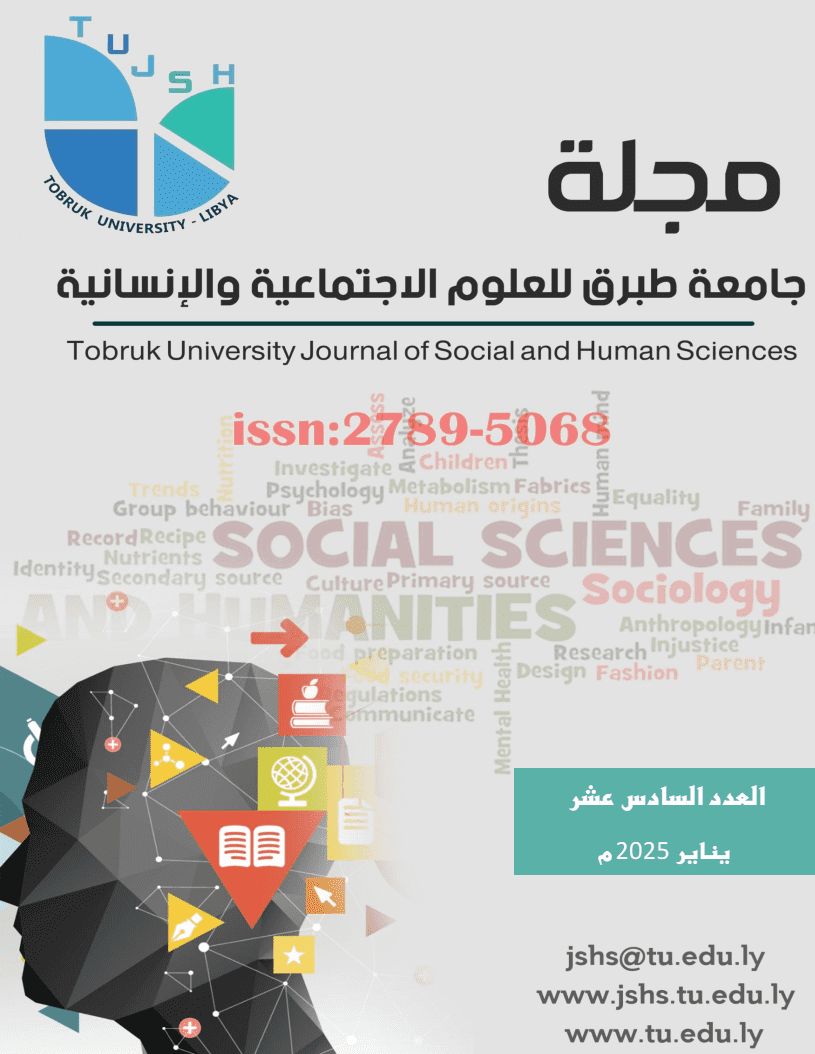Companion Abdullah ibn Qais "Abu Musa al-Ash'ari"
A reading of his biography through historical sources
DOI:
https://doi.org/10.64516/4y99wv12Keywords:
Abu Musa al-Ash'ari, judiciary, hadiths, Basra, KufaAbstract
Since its early beginnings, especially during the early Islamic era (1-41 AH/622-581 AD), Arab Islamic history has witnessed the emergence of figures with a strong and tangible influence on intellectual, scientific, administrative and urban life. Therefore, these figures were considered the basic and practical pillar that many governors and leaders followed in managing the affairs of government in the areas under their administration. The figure of Abdullah bin Qais, known as Abu Musa al-Ash'ari, is considered one of the important figures who inspired these governors and who was a contemporary of the Noble Messenger, as he played a major role in preserving his hadiths and the Holy Quran, and in that he formed a school whose purpose was to preserve the religious heritage of Muslims at that time. He also played a major role in promoting the judicial work of the first Arab Islamic state during the Caliphate of Omar bin al-Khattab. He also contributed significantly to carrying out urban reforms and water constructions in a number of Islamic cities, the most famous of which are the cities of Basra and Kufa
Downloads
References
1 - المغيري ، المنتخـــب فـــي ذكـــر قبائـــل العـــرب ، مطبعـــة المـــدني ، القاهرة ، 1974 م
2 - البلاذري ، انسـاب الأشـراف ، ج1 ، تح : محمـد حميـد ،دار المعــارف ، الإسكندرية ، 1988م ،
3 - ، عبـــد المـــنعم الغلامي ، الأنســـاب والأسر ، مطبعة شفيق ، بغداد- 1986 م
4 - ابن سعد ، الطبقات الكبرى، ج5، تح : علي محمد عمر ، مكتبة الخانجي ، القاهرة ، 2006م
5 - ابن حزم ، جمهرة أنساب العرب ، تح: عبد السلام هارون ، دار المعارف ، الإسكندرية ، 1962م،
6 - القمي ، المقــــالات والفــــرق ،دار المعارف ، الإسكندرية ، 1962م ،
7 - ياقوت الحموي ، معجم البلدان ، مج4، دار صادر ، بيروت ، 1988م ،
8 - كتاب الطبقات ، ج1، تح : أكرم ضياء العمري ، جامعة بغداد، 1966م،
9 - ابن رستة ، الأعلاق النفيسة ، دار صادر ، بيروت ، 1986م،
10 - المسعودي ، مروج الذهب ومعادن الجوهر ، تح : عفيف حاطوم ، دار صادر ، بيروت ، 2010م
11 - ابن الأثير ، أسد الغابة في معرفة الصحابة ، دار ابن حزم ، دمشق ، 1988م
12 - الجاحظ ، البيـان والتبيـين ، ج1 ، تح : عبـد السـلام محمـد هـارون مطبعة المدني ، القاهرة ، 1985م ،
13- ابن عساكر، تاريخ دمشق الكبير ، دار الجيل للثرات العربي ، بيروت ، 1988م،
14 - ابن العماد ، شـذرات الـذهب فـي أخبار من ذهب ، ج1 ، المكتب التجاري للطباعة ، بيروت ، ( د. ت ).
15 - الـذهبي ، تـذكرة الحفـاظ ، ج1 ، مطبعة مجلس دائرة المعارف العثمانية ، حيدر آباد الهند ، 1914م
16 -البخاري ، التاريخ الكبير، ج3، تح: مصطفي عبد القادر عطا ، دار الكتب العلمية ، بيروت ، 1985،
17 - القزویني ، آثار البلاد وأخبار العباد ، دار صادر ، بيروت ، 1984م
18 - صالح احمد العلي ، التنظيمات الاجتماعية والاقتصادية في البصرة ، المعارف ، بغداد ، 1966،
19 - البكرى، معجم ما استعجم من أسماء البلاد والمواضع ، ج4، تح : مصطفي السقا، عالم الكتب ، بيروت ، 1980م،
20 - هـادي حسـين حمود ، الحيـاة الفكريـة فـي العـراق فـي صـدر الإسـلام والخلافـة الأمويـة ، مجلـة دراسـات تأريخية ، ع3 ، بيت الحكمة ، بغداد – ، (2000م
Downloads
Published
Issue
Section
License
Copyright (c) 2025 د. إمحمد أبو القاسم محمد المزوغي (Autor/in)

This work is licensed under a Creative Commons Attribution 4.0 International License.








